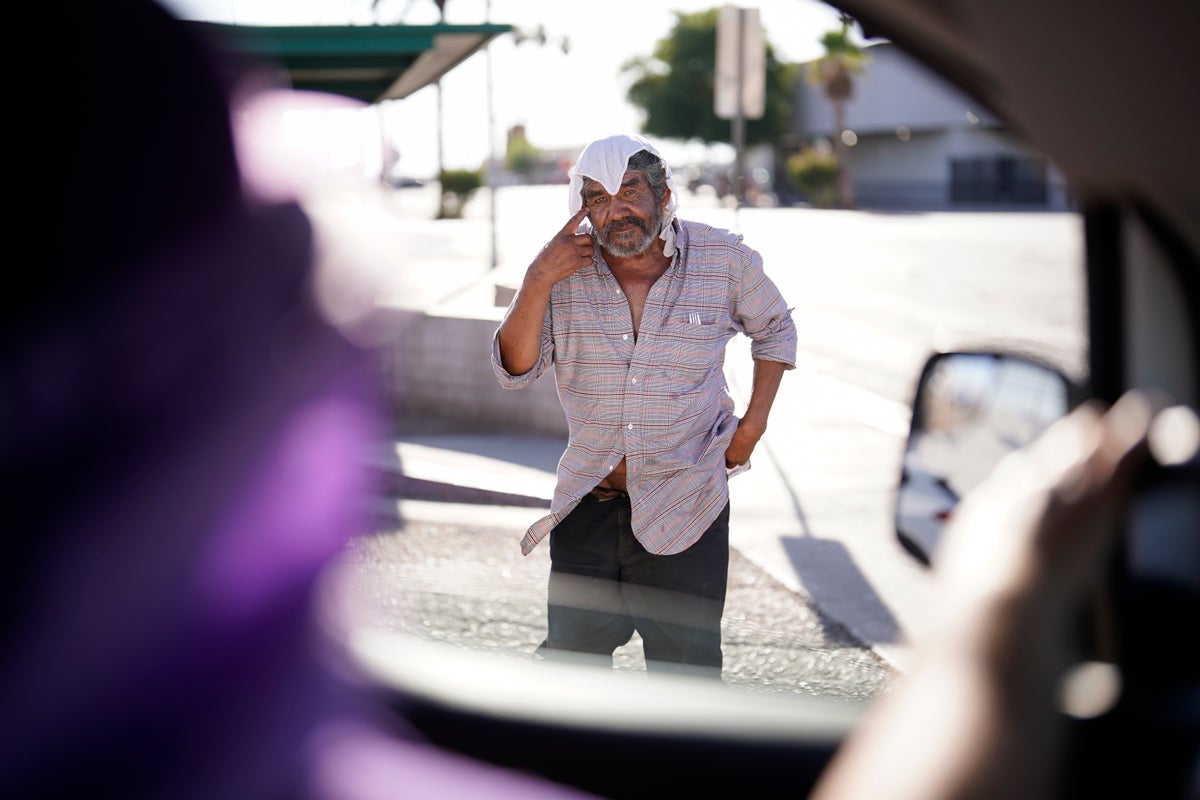
As the U.S.-Mexico border region baked in a heat wave, Associated Press photographer Gregory Bull took to the streets of cities there. Bull photographed a homeless man talking with Maribel Padilla of the Brown Bag Coalition after receiving a wet towel in Calexico, Calif. Once temperatures hit 113 degrees Fahrenheit (45 Celsius), Padilla's nonprofit provides cool towels and refreshments to unhoused people.
In India, rescuers found five more bodies Friday in western Maharashtra state, raising the death toll from a landslide triggered by torrential rains to at least 21 with many others feared trapped under the debris. And in Switzerland, authorities closed airspace in a sliver of the country after recreational hang gliders hampered efforts to fight a persistent wildfire.
Here’s what’s happening related to extreme weather and the climate right now:
—In the United States, coral reefs around the Florida Keys are losing their color early this summer because of record-high water temperatures, and federal scientists are already seeing some bleaching, report Terry Spencer and Patrick Whittle.
—With global warming, scientists are warning that disease-carrying mosquitos are on the move around the world, Mary Katherine Wildeman reports in an AP collaboration with Grist.
—In the United States and India, there are efforts to install solar panels over canals to produce clean energy and reduce evaporation of precious water, report Brittany Peterson and Sibi Arasu.
—As temperatures sizzle around the world, people seek sometimes creative ways to get relief from the heat. AP photo gallery.
QUOTABLE:
“The corals are pale, it looks like the color’s draining out,” said researcher Katey Lesneski, who has observed some Florida Keys coral reefs losing their color weeks earlier than normal this summer from record high water temperatures. “And some individuals are stark white. And we still have more to come.”







